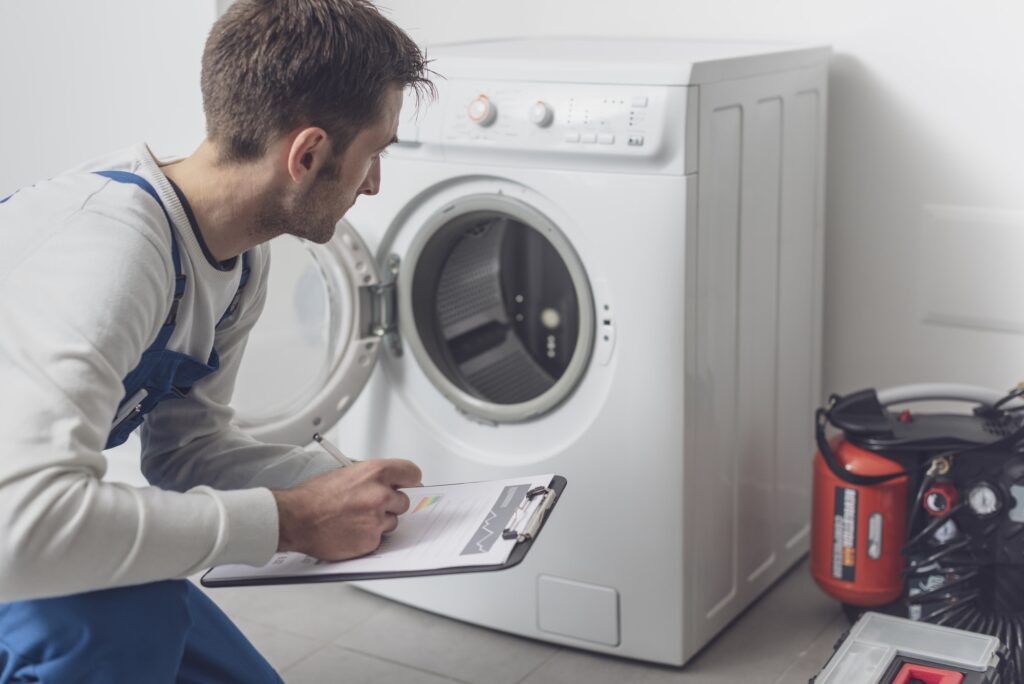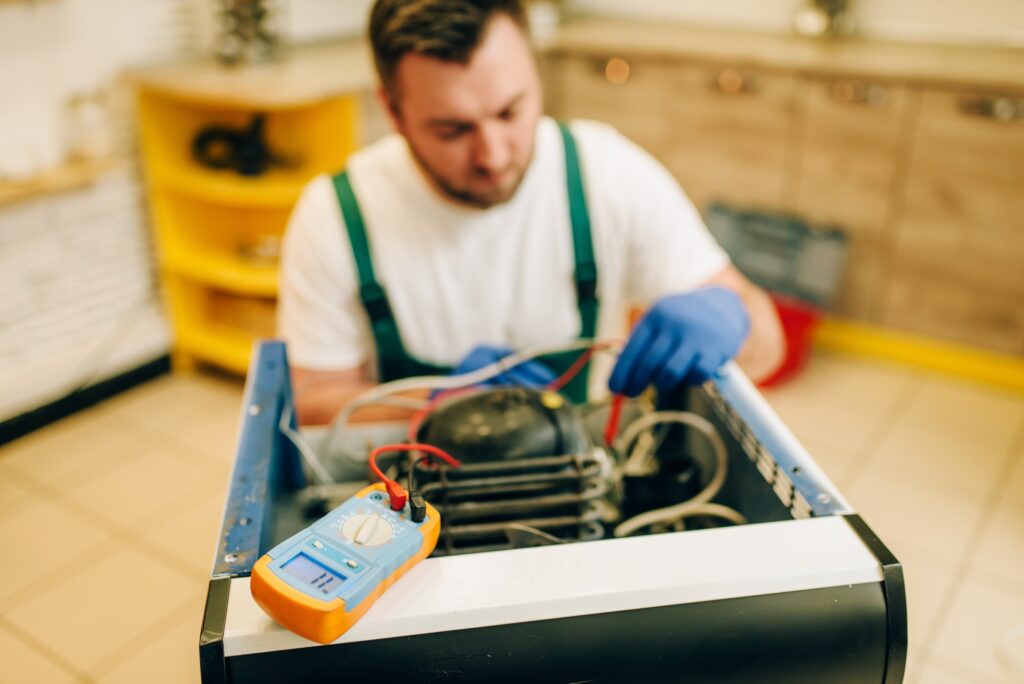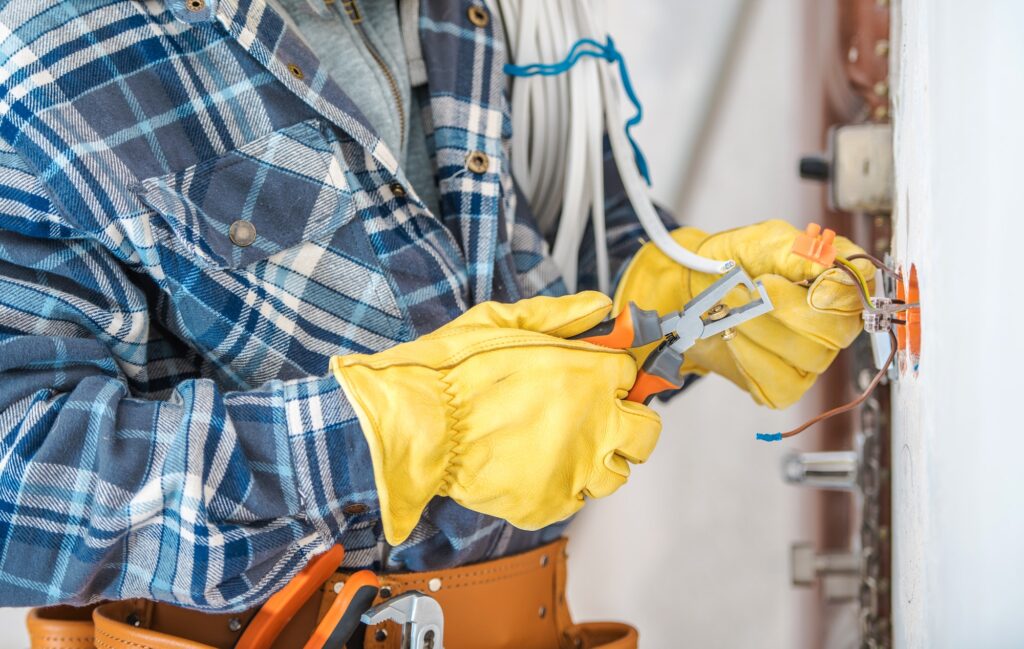
CRUCIAL FOR HEALTH AND SAFETY
Inspection and testing are legal requirements in the UK and should be carried out regularly. Our team will use specific testing and more.
Procedures to ensure circuits are working properly and safely before being energised. Whether domestic, commercial, or industrial, the key is health and safety. This procedure verifies that BS 7671 requirements (wiring regulations) have been met and confirms the absence of damaged or defective electrical equipment, potentially causing safety issues.

Landlord Electrical Certificates
Portable Appliance Testing


Qualified and Licensed Electricians
At KAD Electricians, we start assessing risks, such as:
- Electric shock
- Burns or fire
- Moving equipment
- Power supply interruptions
- Arcing or burning
If any part of the testing fails to comply, this specific test, together with the previous test, will need to be done again once the fault has been fixed, as the test’s results may not have been accurate.
EICR (Electrical Installation Condition Report)
At KAD Electricians, we can prepare 5-year EICR tests at short notice (we will email it to you the day after visiting your property). Access can be arranged through estate agents as you will get a better price.
Pricing policy for IEE BS 7671 EICR inspection and testing
Property Size
1-bed property
2-bed property
3-bed property
4-bed property
5-bed property
Estimated Price (for up to 10 circuits)
From £90*
From £100*
From £120*
From £135*
From £175*
*Rates are subject to VAT
We will happily give you a better price to complete EICR certificates for multiple properties. Please click here to read more information about our pricing policy.
If any work is required in order to upgrade your installation to the BS 7671 wiring regulation standards, we will prepare a quote together with our report. Once we complete this extra work, we will issue a satisfactory Electrical Installation Certificate for your compliance.
Being NAPIT’s electrical inspector, we meet the requirements to undertake Electrical Safety Reports under the Housing (Scotland) Act 2006 and the Electrical Safety Standards in the Private Rented Sector (England) Regulations 2020 for landlords.
The inspection, testing, and certification of electrical installations underpin electrical safety in all situations, at home and in the workplace. While government-approved schemes focus on new installation work, much of the inspection and testing work is actually carried out to ensure safety in the long term.
Any Concerns or Questions Before Going Ahead?
Inspection and testing reveal faulty wiring, overloaded circuits, and potential fire hazards, ensuring a safe electrical environment.
Ensure clear access, document electrical upgrades, address visible issues, and schedule a licensed electrician for a thorough pre-inspection assessment.
Look for flickering lights, tripped breakers, burning smells, or outdated wiring. Any safety concern warrants prompt professional inspection.
Yes, a qualified electrician provides safety certificates post-inspection, confirming compliance with standards and ensuring a secure electrical system.
Hire a licensed electrician for regular inspections, upgrades, and adherence to local codes, ensuring your property aligns with electrical compliance standards.
Upgrade outdated wiring, install safety devices, label circuits, and educate occupants. Regular maintenance ensures ongoing electrical safety.
For homes, every 10 years is common. Commercial properties require more frequent checks, usually every 5 years. Consult an electrician for specifics.
Regular testing prevents hazards, identifies faults, ensures compliance, extends equipment life, and enhances overall electrical system safety.
PAT testing ensures appliance safety, detects faults, and complies with regulations, reducing risks of electrical accidents and enhancing workplace safety.


